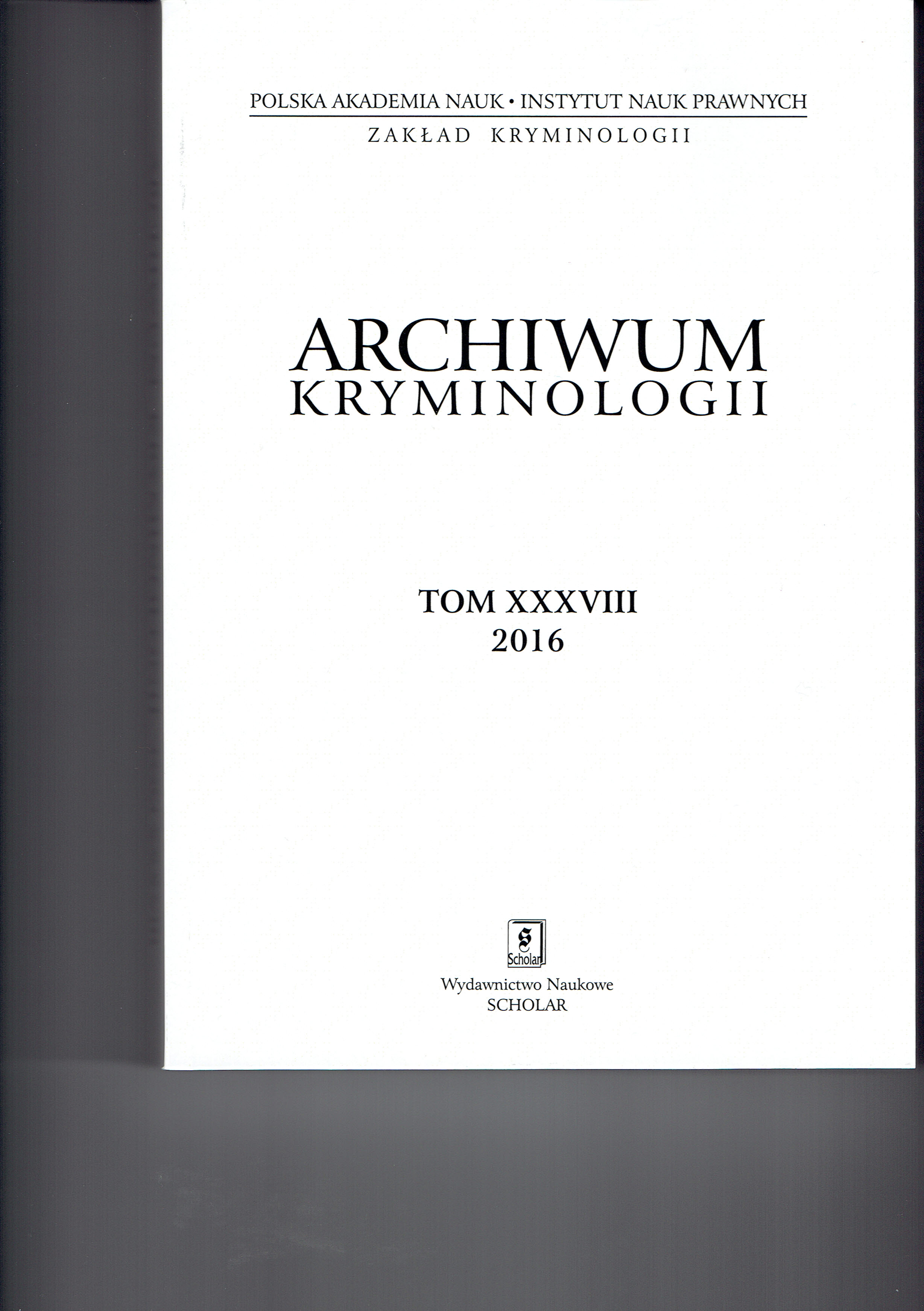Analiza uwarunkowań i mechanizmów niezbędnych do zwiększenia skuteczności działań służb w realizacji zadań ustawowych w obszarze handlu ludźmi
Overview of the Conditions and Procedural Measures Deemed Necessary to Increase the Overall Effectiveness of the State Law Enforcement Bodies in Combating Human Trafficking
Author(s): Barbara Namysłowska-GabrysiakSubject(s): Law, Constitution, Jurisprudence, Criminal Law
Published by: Instytut Nauk Prawnych PAN
Keywords: handel ludźmi; działania służb w realizacji zadań ustawowych w obszarze handlu ludźmi;kryminologia;
Summary/Abstract: The study aims to address the various procedural measures whose development at different levels of national legislation, as well as at the institutional level of state law enforcement agencies, may contribute both to preventing and combating human trafficking more effectively. The overall effectiveness of prosecuting the actual perpetrators of this crime and effective protection of its victims depends primarily on adopting adequate legal instruments, and secondly, on the actual organization of work within the law enforcement bodies directly responsible for preventing and combating human trafficking, i.e. the State Prosecuting Service, the Police, and the Border Guard, whereas ensuring adequate protection of the victims also falls within the statutory remit of the judicial institutions, first and foremost, the common courts of law. With this in mind, the study discusses several select legal instruments pertaining to the prosecution of perpetrators and the system of victims protection, in conjunction with an assessment of their effective application in everyday practice. At the same time, the study attempts to address the proposed procedural measures deemed necessary to boost the overall effectiveness of the state law enforcement bodies in pursuing their statutory objectives with regard to human trafficking at large. Due to the space constraints, only those measures which are currently deemed to pose by far the biggest challenges, as well as those believed to create barriers to effective combating of human trafficking are addressed. In terms of the overall efficiency of the prosecution services, the present study discusses the results of other studies focused on practical application of the legal definition of human trafficking, as per the provisions of Article 189a, § 1 of the Polish Penal Code in conjunction with the provisions of Article 115, § 22 of the Polish Penal Code, as well as the actual modus operandi of the perpetrators, and also those favoured by various crime syndicates involved in human trafficking for business purposes. As far as the standards of victims protection are concerned, the study focuses on their presentation in terms of human rights, and the active obligation of the respective countries to ensure both legally and actually effective protection for the victims of this crime, in particular the standards applied to their identification, as strongly highlighted in the literature on the subject. Furthermore, the general body of knowledge and overall awareness of all state law enforcement agencies with regard to the individual components of human trafficking is also given due prominence. Those comprise, first and foremost, violence against women, secondary victimization, gender stigma, especially in the case of sexual exploitation, the overall cultural and social context, migration, and respective socio-economic status of the victims. Making the law enforcement agencies and the judiciary more aware of the existence of those components is essential to improving and enhancing their overall effectiveness in the pursuit of their statutory obligations, particularly with regard to ensuring that an effective system of victims protection is put in place.
Journal: Archiwum Kryminologii
- Issue Year: 2016
- Issue No: XXXVIII
- Page Range: 125-139
- Page Count: 15
- Language: Polish

